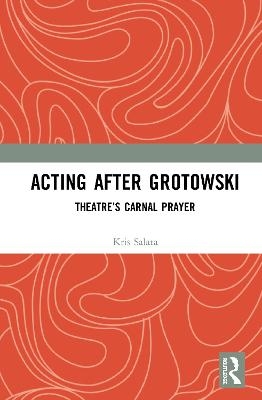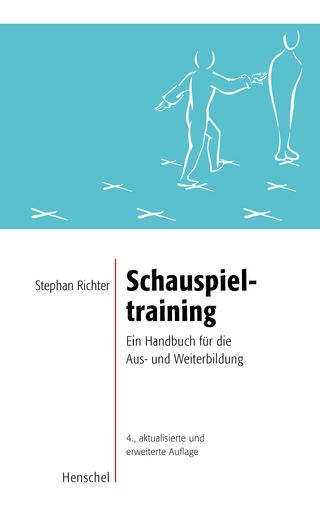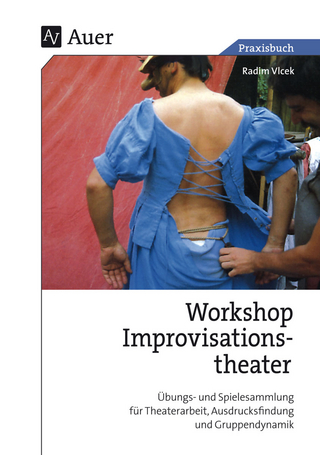
Acting after Grotowski
Theatre’s Carnal Prayer
Seiten
2020
Routledge (Verlag)
978-0-367-18324-0 (ISBN)
Routledge (Verlag)
978-0-367-18324-0 (ISBN)
- Titel z.Zt. nicht lieferbar
- Versandkostenfrei innerhalb Deutschlands
- Auch auf Rechnung
- Verfügbarkeit in der Filiale vor Ort prüfen
- Artikel merken
For whom does the actor perform? Addressing this question, Acting after Grotowski focuses on an actor’s work as a self-revelatory deed. Introducing Grotowski’s concept of "carnal prayer," Kris Salata develops an interdisciplinary theory of acting and spectating, while lending thoughts to theatre as a liturgical performance.
For whom does the actor perform? To answer this foundational question of the actor’s art, Grotowski scholar Kris Salata explores acting as a self-revelatory action, introduces Grotowski’s concept of "carnal prayer," and develops an interdisciplinary theory of acting and spectating.
Acting after Grotowski: Theatre’s Carnal Prayer attempts to overcome the religious/secular binary by treating "prayer" as a pre-religious, originary deed, and ultimately situates theatre along with ritual in their shared territory of play.
Grounded in theatre practice, Salata’s narrative moves through postmodern philosophy, critical theory, theatre, performance, ritual, and religious studies, concluding that the fundamental structure of prayer, which underpins the actor’s deed, can be found in any self-revelatory creative act.
For whom does the actor perform? To answer this foundational question of the actor’s art, Grotowski scholar Kris Salata explores acting as a self-revelatory action, introduces Grotowski’s concept of "carnal prayer," and develops an interdisciplinary theory of acting and spectating.
Acting after Grotowski: Theatre’s Carnal Prayer attempts to overcome the religious/secular binary by treating "prayer" as a pre-religious, originary deed, and ultimately situates theatre along with ritual in their shared territory of play.
Grounded in theatre practice, Salata’s narrative moves through postmodern philosophy, critical theory, theatre, performance, ritual, and religious studies, concluding that the fundamental structure of prayer, which underpins the actor’s deed, can be found in any self-revelatory creative act.
Kris Salata is Professor at the School of Theatre, College of Fine Arts in Florida State University, U.S.A.
Preface. Introduction. 1. Grotowski's Carnal Prayer 2. Two Performances of Prayer 3. The Rhizome of Working Points 4. For Whom Should I Perform? 5. On Prayer 6. The Event of the Encounter, the Event of Prayer. Epilogue.
| Erscheinungsdatum | 11.05.2020 |
|---|---|
| Zusatzinfo | 1 Halftones, black and white; 1 Illustrations, black and white |
| Verlagsort | London |
| Sprache | englisch |
| Maße | 156 x 234 mm |
| Gewicht | 340 g |
| Themenwelt | Kunst / Musik / Theater ► Theater / Ballett |
| ISBN-10 | 0-367-18324-2 / 0367183242 |
| ISBN-13 | 978-0-367-18324-0 / 9780367183240 |
| Zustand | Neuware |
| Haben Sie eine Frage zum Produkt? |
Mehr entdecken
aus dem Bereich
aus dem Bereich
ein Handbuch für die Aus- und Weiterbildung
Buch | Softcover (2024)
Henschel Verlag in E. A. Seemann Henschel GmbH & Co. KG
24,95 €
Übungs- und Spielesammlung für Theaterarbeit, Ausdrucksfindung und …
Buch (2023)
Auer Verlag
31,99 €


